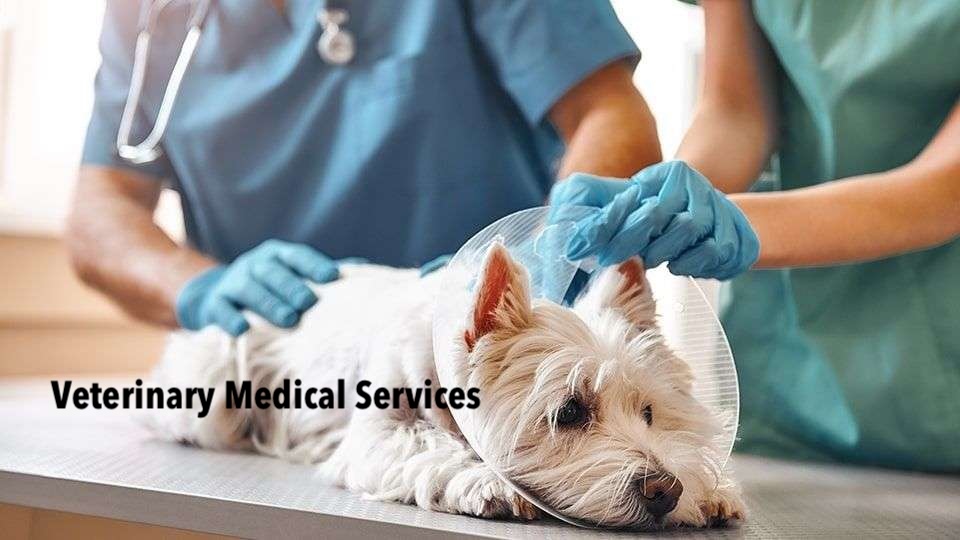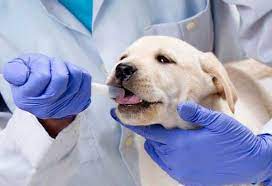How to Keep Your Pet Healthy for Life
If you’ve ever had a pet curl up next to you after a long day or greet you at the door with endless excitement, you know they’re more than just animals—they’re family. From the way they nuzzle into your lap to how they seem to sense your mood, pets bring unmatched joy and comfort into our lives. And just like any family member, they deserve the very best care. That’s where veterinary services come in—not just when something goes wrong, but to keep your furry friend healthy, happy, and living their best life.
Why Vet Visits Matter
Even When Your Pet Seems Fine Animals are pros at hiding discomfort. Your pup might still chase their toy, or your cat might still nap like a champ—but that doesn’t always mean they’re okay. Regular vet visits are like wellness check-ins: they help catch issues early, often before symptoms even show. More than just treating illnesses, vets are your go-to for prevention—think vaccines, diet advice, parasite control, and more. A simple visit now could save your pet a lot of pain (and you a lot of stress) later.

The Main Types of Veterinary Services You Should Know
Every pet is unique, and their healthcare needs change with time. Here’s a breakdown of what veterinary services really cover:
1. Preventive Care: Staying Ahead of Trouble Think of preventive care as your pet’s personal health insurance—it helps catch problems early or stop them from happening at all. Just like you go to the doctor for annual checkups or get vaccines to stay healthy, your pet needs that kind of attention too. Here’s what it usually includes:
- Vaccinations for rabies, parvo, distemper, etc.
- Yearly checkups to make sure everything’s running smoothly.
- Parasite prevention for fleas, ticks, and heartworms. Microchipping, just in case your explorer gets lost.
2. Diagnostics: When Something Feels “Off” Sometimes your pet just isn’t acting like themselves—maybe they’re sleeping more than usual, skipping meals, or just seem off. While it’s easy to hope they’ll bounce back on their own, these small changes can be signs of something more serious. That’s where diagnostic tests come in. They help your vet uncover what’s going on beneath the surface:
- Bloodwork
- X-rays or ultrasound scans
- Urine and stool analysis
- Allergy tests
3. Surgeries: From Routine to Urgent Just like us, pets sometimes need surgery—whether it’s a standard procedure to keep them healthy or something more serious that needs quick action. Here’s a closer look at the most common types of surgeries your pet might need:
- Spaying and neutering
- Tumor removal
- Orthopedic surgeries
- Emergency procedures
4. Dental Care: Because That “Dog Breath” Isn’t Just Gross We’ve all joked about “dog breath,” but here’s the truth—it could be a red flag for something serious. Just like with humans, poor dental health in pets can lead to much bigger issues, including heart, liver, and kidney problems. That’s why keeping your furry friend’s teeth clean isn’t just about fresh breath—it’s about their overall well-being. Here’s what veterinary dental care includes:
- Vets offer professional teeth cleanings
- Treat infections or extractions if needed
- And guide you on at-home brushing routines
5. Nutrition & Weight Management: Food That Fits Feeding your pet isn’t as simple as just filling the bowl. Every pet is different—and what they eat has a big impact on their energy, health, and even lifespan. That’s where veterinary nutrition support comes in. Your vet doesn’t just help with what to feed your pet—but how much, how often, and why. Here’s how they help:
- Create a custom diet plan
- Recommend food based on age, breed, and lifestyle
- Address underweight or obesity issues
6. Senior Pet Care: Extra Love for the Golden Years As our furry companions grow older, their needs change—just like ours do. They may not chase toys like they used to or jump on the couch as easily. That’s totally normal. But with the right care, their golden years can still be full of comfort, love, and tail wags. Veterinarians play a key role in helping your senior pet age gracefully and stay as healthy and happy as possible. Here’s what they focus on: Joint issues and arthritis Age-related screenings Dietary adjustments
Where you can take veterinary medical services?
1. Your Neighborhood Vet Clinic – The Friendly Face of Pet Healthcare Most pet parents start here—and for good reason. Local veterinary clinics are kind of like your pet’s personal doctor’s office. Whether it’s time for vaccines, a wellness checkup, or your furry friend just isn’t acting like themselves, this is usually the first stop. These clinics are great for: Routine health checkups Vaccinations and deworming Advice on food, grooming, and everyday pet care
2. Animal Hospitals – When Things Get Serious Just like humans have emergency rooms, pets have animal hospitals. These places are equipped with advanced tools and trained staff to handle more serious situations. You’d go here if: Your pet needs surgery They have a chronic illness You need 24/7 emergency care Animal hospitals often have specialists on hand and can handle diagnostics like X-rays, MRIs, and more. They’re a big deal when your little buddy needs extra help.
3. Mobile Vets – Vet Care That Comes to You Got a nervous cat? A big dog who hates the car? Or maybe you’re just juggling too much to make it to the clinic? That’s where mobile vets come in. These traveling vets offer: At-home checkups and vaccines Elderly or palliative care in a stress-free space A calm, familiar environment for your pet
4. Specialist Clinics – When Your Pet Needs an Expert Just like you might see a dermatologist or cardiologist, pets sometimes need specialists too. If your regular vet spots something that needs a closer look, they’ll refer you to a specialist. You might visit a: Pet dermatologist (for skin issues or allergies) Orthopedic vet (for bone or joint problems) Veterinary dentist (for serious dental work) Oncologist (for cancer treatment)
5. Online Vets– Quick Advice from Your Couch Sometimes, you just need quick answers. Maybe it’s 10 PM, and your dog won’t stop scratching. Or your cat skipped dinner and you’re worried. That’s where online vet services come in. You can: Get a virtual consultation Ask if symptoms need a vet visit Chat about behavior or food concerns
6. Pet Care Memberships & Wellness Plans – Budget-Friendly and Consistent Some vet clinics (especially larger chains) offer wellness programs that bundle care into one simple monthly plan. These are perfect if you like knowing your pet is covered year-round. They often include: Regular checkups Vaccinations Dental cleanings Discounts on other treatments
How Often Should You Go?
- Puppies & Kittens: Every 3–4 weeks until they’re 4–6 months old
- Adults (1–7 years): At least once a year
- Seniors (7+ years): Every 6 months, or more if needed
When to Call the Vet
Like, Now Certain signs mean you shouldn’t wait:
- Struggling to breathe
- Continuous vomiting or diarrhea
- Sudden collapse or weakness
- Seizures Swelling, limping, or visible wounds
- Ingesting something toxic (like chocolate or meds)
Our furry friends give us endless love—and they count on us to take care of them in return. From regular vet checkups and proper food to emergency care and senior support, looking after their health is how we show up as the pet parents they deserve. Because at the end of the day, they’re more than pets
Top Stores to Buy Veterinary Medical Services: What Every Pet Parent Should Be Aware Of with Extra Discounts
Similar Posts
Stay Connected
Sign Up to
Our Newsletter
Get expert reviews and suggestions for 100s of Categories and Stores directly to your Inbox.






